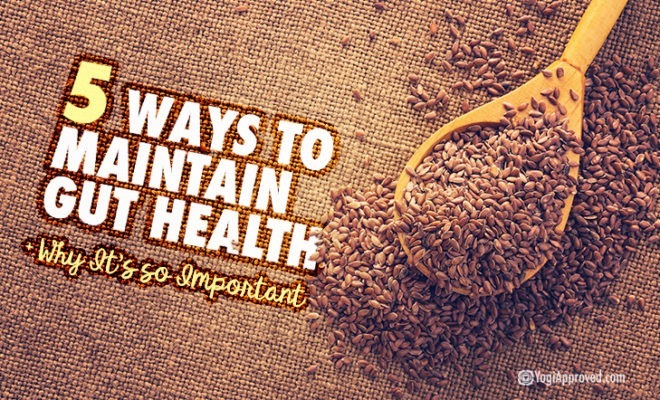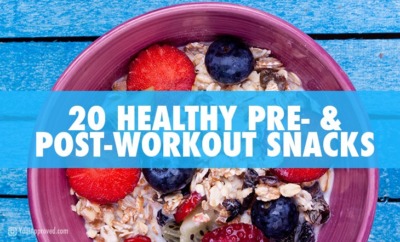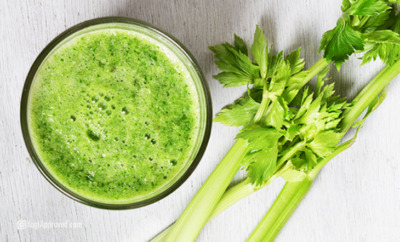What Is a Microbiome Diet and How Does It Keep Your Gut Healthy?

It’s pretty easy to get overwhelmed in the clutter that stems from the information age. Each day you could read something new about what to eat and how to move, but how do you know what’s legit? Well, it all comes down to the microbiome in your gut. By paying attention to good bacteria in your body, you can create lifestyle practices that are actually sustainable and enjoyable.
It’s important to find simple and sustainable ways of eating, moving, and living. In fact, it’s key to your overall health and wellness! Learning about the health of your gut and adopting the Microbiome Diet is one of those ways.
But let’s be clear: the Microbiome Diet isn’t just another food fad or quick weight loss scheme. It’s a balanced, sustainable, and healthy way of eating that will actually help you feel and live better. It’s rooted in the belief that the state of your digestive system is a major contributor to your overall health, or lack thereof.
One of the biggest misconceptions is that an absence of digestive or gut issues means everything in your body is in optimal condition . . . but that’s not necessarily the case. An imbalance in your digestive or gut health can affect nearly every part of your body. Therefore, it’s vital to be proactive in regards to this aspect of your health and take the best possible care of it.
What is the Microbiome?
The microbiome is an internal ecosystem of sorts in your body. It’s comprised of trillions of bacteria that live mostly in your digestive system, although they can be found throughout your entire body.
Along with stress management and your sleep patterns, the food you choose directly shapes the state of your microbiome by supporting the good bacteria. An imbalance, or lack of good bacteria, can affect your hormones, weight, metabolism and immune function (as well as affecting nearly every function in your body).
The genes in our microbiome outnumber the genes in our genome by about 100 to 1.
So, it’s pretty important to say the least.
By making some modifications to the foods you choose and being consistent with it, you can shift from coping and getting through this life, to truly thriving.
Here are 7 facts you need to know about your microbiome:
- Around 90% of disease can be traced back to the gut and the state of your microbiome
- The central location of the microbiome is the gut, which is where most of the bacteria live
- Most of the 10–100 trillion microorganisms in the human gastrointestinal tract live in the colon
- Your gut health can impact how your body extracts and obtains nutrients from the food you eat and the way in which it stores fat
- Avoid overuse of antibiotics (it eliminates bacteria, including the good kind)
- Exercise is one of the best natural anti-stress activities that helps contribute to a healthy microbiome
- Supplements that support a healthy microbiome are: omega-3 fish oil, selenium, vitamins C, D, and E, carotenoids, and coenzyme Q 10
The Microbiome Diet
The Microbiome Diet aims to support immunity, lower inflammation, and increase the number of good bacteria to enhance your overall health.

Foods to include:
- Fresh vegetables
- Whole pieces of fruit (not juice)
- Probiotics (which can be found in kombucha, kefir, or cultured vegetables)
- Wild caught fish
- Cage-free eggs
- Grass-fed meat
- Healthy fats (grass fed butter, coconut oil, extra virgin olive oil, nuts, and seeds)
- Ancient grains (anasazi beans, aduki beans, black beans, chickpeas, quinoa, etc)
- Herbs, spices, and teas (turmeric, ginger, basil, oregano, thyme, organic coffee, and green tea)
- Red wine and dark chocolate (in moderation)
Foods to avoid:
- Refined carbohydrates
- Trans fats
- Added sugars
- Refined vegetable oils
- Pasteurized dairy products
A Final Word on the Microbiome Diet
We are fortunate to know more about the intricacies of the human body today than ever before. As science has shown poor gut health affects almost the entire body, it’s imperative to make sure we actively support our microbiome.
Eat a variety of anti-inflammatory foods, manage your stress, incorporate probiotics into your diet, and exercise regularly. With these simple things, you can enhance your body’s microbiome and positively impact your overall health.


This Month's Letter
From the Editor
Monthly motivation and food for
thought from our founder.
























